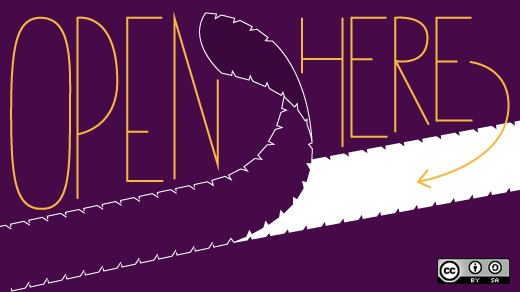Last week North Bridge Venture Partners and Black Duck Software released the 7th Annual Future of Open Source survey. Previous years' surveys have generated interest industry-wide, with implications that cross industries and ecosystems.
Survey Highlights
- 2013 saw the largest response ever, with nearly 60% coming from non-vendors
- Primary reasons for choosing open source include: Innovation, Collaborative Partnerships, Development Methods, and Developer Talents
- 57% of respondents predict they will collaborate with their competitors in the next 3 years
- Open source is no longer the domain of horizontal infrastructure projects; key verticals are investing heavily
- Most respondents believe that at least half of all procured software will be open source in 5 years
- For investors, the number of deals decreased but the average deal size more than doubled to US$15.5M.
So what can we take away from this survey? Most importantly I believe the survey results indicate a shift in the way companies do business as much as a change in the open source software market. These new trends will have a ubiquitous cultural impact on society as whole.
Competitors working together
Collaborative partnerships are cited as a key open source business driver. The community-driven development model has opened the door to effective collaborative partnerships within vertical, industry-driven communities. Andrew Aitken, GM and Founder of Olliance Consulting, calls these “super communities."
In a super community, competitors are working together to reduce overhead, develop shared industry support models, define standards, and invest resources in shared innovative solutions. Culturally, the trend toward super community brings less reliance on pay-to-play standards bodies, more shared open standards and interoperability, and an increased rate of shared innovation within industries.
Democratization
Innovation is now the primary reason for choosing open source. Why? Because collaborative, community-driven development has proven to offer the fastest rate of innovation of any engineering model to date. What’s culturally significant about open source driving innovation? The principles that make open source developers successful are transparency, collaboration, self-organization, and meritocracy. These principles “democratize” the development process. Suddenly anyone with an internet connection has access to not only use the software, but more importantly to build on the ideas behind it. Users of all stripes can learn and add to the knowledgebase of the community. If open source principles are leading the way, then expect the majority of new innovations increasing rather than limiting access and thus each offering a new kind of democratization.
Inner-source
Respondents point to development methods as a key reason to adopt open source. Tim O’Reilly coined the term "inner-source" as the application of open source development methods and principles inside the corporate firewall. Corporations globally are undertaking this cultural change having witnessed the astronomical rate of innovation in the open source community.
For those of us who have been around long enough to remember when open source almost always required explanation, it is wondrous to see some of the most conservative corporations in highly regulated industries begin to shift from the traditional hierarchical model of development and embrace transparency, collaboration, and self-organization along with agile, iterative release processes. They are embracing a decentralization of power in favor of group decision making, building community within the corporation.
More open source businesses
Investors are seeing the returns even in a sluggish economy. This indicates the rise of the open source business model, a significance beyond the mere development and adoption of software. Over the years, we’ve witnessed technological innovation come and go with the tides of the economy, but open source appears to be a recession-proof technology model. Look at the gains of Red Hat in a slow economy: the company grew steadily year over year indicating that, while spending less in down years, companies’ affinity for open source software actually increases in hard times. In addition to eager investors, the JOBS Act, which legitimizes crowd-sourced funding for corporations selling shares, will allow open source companies to tap into their communities for funding and dominate the technology market in a way previously reserved for the likes of Oracle and Microsoft. And since young innovators coming out of academia are so comfortable with open source, they’ll look first to these business models to launch their new companies.
Freedom to choose
Respondents believe that half of all procured software will be open source in 5 years. This is an indication that enterprise open source software will begin to outpace proprietary alternatives. Vendors are racing to add features customers don’t necessarily want or need, a problem coined “performance oversupply” by Harvard Business School professor Clayton Christensen. Open source, on the other hand, allows the users to influence and drive product roadmaps, delivering value in terms of what is actually needed to get the job done.
Meanwhile buyers are suffering from a growing similarity between products and corporate procurement systems are reducing complexity to the lowest common denominator. Conversely, open source allows standards to emerge for non-differentiating solutions, freeing resources to focus on innovation and solving new business problems. Open source is not only winning procurement battles due to more efficient and less expensive development models, but also creeping into corporate infrastructures free of charge and therefore evading procurement altogether. This points to radical change in the technology industry. As commoditization slows the growth of monolithic proprietary software suites and open source gains traction, the industry will move from empires built on user lock-in to a more value-based economy.
So what’s the bottom line? Marc Andreesson famously said, "Software is eating the world." I think Michael J. Skok of Northbridge Venture Partners got it right last week—open source is eating the world. Expect the principles behind its success—collaboration, transparency, and meritocracy—to influence our culture in significant ways beyond engineering.






Comments are closed.